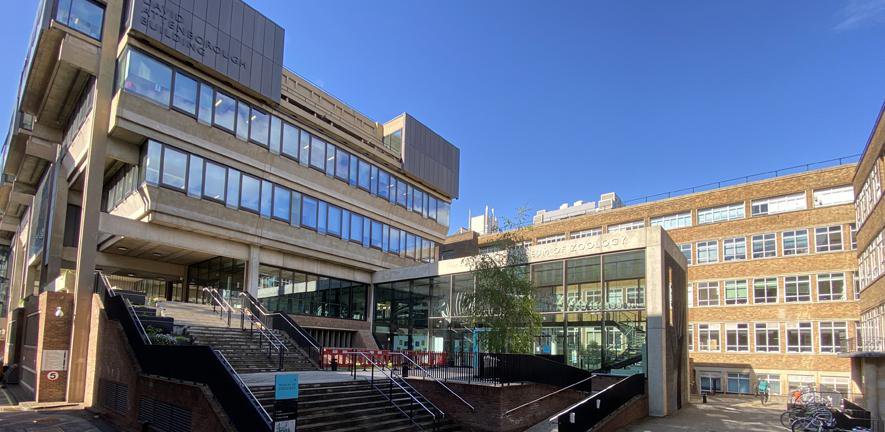
The Department of Zoology has a thriving community of researchers, students, staff, and visitors who share a fascination in how organisms develop, function, behave, interact, evolve and bridge different levels of organisation. Evolution provides a unifying theme for much of their research, as does their aim to understand the interactions between living organisms and their environments.
The Department is home to the outstanding, recently refurbished, Museum of Zoology which houses collections of international importance. The Department shares research priorities and very close links with the Cambridge Conservation Initiative.
The Department consists of around 35 research groups, organised into six areas: Behavioural Ecology, Cell and Developmental Biology, Conservation Science, Evolutionary Genetics and Genomics, Neurobiology, Biomechanics and Behaviour, and Palaeobiology. Their work impacts biodiversity, conservation, global change, sustainability, biotechnology, and health, across the world.
Members of the Department provide high quality and enthusiastic undergraduate teaching that covers a diverse range of topics from single-cell organisms to whole ecosystems, as well as providing outstanding opportunities to Postgraduate students.
Zoology occupies four buildings on the New Museums Site in central Cambridge and a field station in nearby Madingley.
Learn more about the Department of Zoology.
Wider Impact
New generation seasonal influenza vaccines
Learn how Cambridge and its partners make a positive impact around the world.


